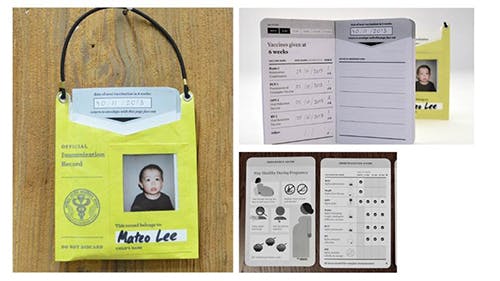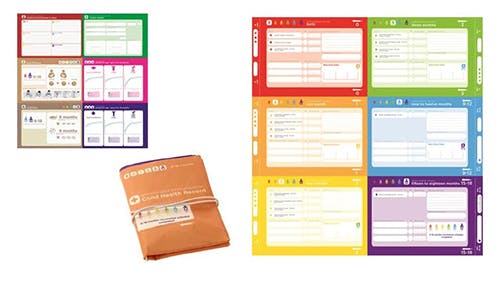By Orin Levine, Director of Vaccine Delivery at the Bill & Melinda Gates Foundation
Editor’s Note: This post originally appeared on the Bill & Melinda Gates Foundation’s Impatient Optimists blog.
Like many parents, my wife and I eagerly documented the first few years of our daughters’ lives, excited to chronicle every milestone. We can dig out video footage of their first steps, and unroll the old growth charts where we measured their heights each year. I have no doubt we could also find their early finger-paintings, and every single report card – but if we were asked to produce a record of their immunizations, we would come up short.
True, they have records at their pediatrician’s office. But the fact that we – two parents that work in the field of global health – do not have a tangible, user-friendly vaccination card for each of our children at home speaks to the difficulty of keeping updated vaccination records.
Ranking among the very best investments we can make in our children, our communities and in future generations, vaccines merit meticulous tracking. They serve as the promise that children will be able to grow up healthy and reach each of the milestones we envision for them. Unclear documentation of these key health interventions can cause confusion and concern for any parent, regardless of where they live.
Around the world, many parents lack a consistent pediatrician their children can see throughout childhood, and who keeps these important records. Even so, many families never receive health records to keep for their children – or if they do, they are seldom designed in a way that prevents them from easily getting lost, damaged, or destroyed. Accurate records are needed to maintain health histories for children, so that health workers can identify those who need to be immunized, flag missed immunizations, and help families follow the recommended immunization schedules. As one can imagine, it is hard to guarantee protection from deadly diseases to children when their records are incomplete, inaccessible, or non-existent.
Given that most countries’ immunization cards have not been overhauled in 40 years, the Gates Foundation sponsored Records for Life, a contest to redesign the card in order to better meet the needs of providers and caregivers. More than 300 teams from 41 countries submitted ideas. Many of their designs suggested ways to make records more clear for parents, more flexible for health workers and more durable and transportable. Some incorporated colors and pictures to increase clarity and emotional impact, and a few even included space for a child’s photograph. Click here to see all of the winning designs.
Similar to many of the challenges faced in ensuring access to vaccines, improving the child health record requires a fusion of practicality and creativity. These new designs exemplify this combination, and have the potential to strengthen information systems and empower health workers and families to protect children from vaccine-preventable diseases. They demonstrate how global health innovations, whether simple or sophisticated, all contribute to reducing childhood deaths. The hope is that it will now be easier for families to know the answer when asked “Where is your vaccination card?” and – in keeping with the theme of this year’s World Immunization Week – “Are you up-to-date?”
Parents everywhere – including me – cling to small mementos and memories as their children get bigger. The modernized immunization card is a keepsake worthy of safeguarding and updating – a place where parents and health workers can detail health stories to date, pencil in upcoming appointments and, most importantly, log the vital information that could save a child’s life.



 View All Blog Posts
View All Blog Posts
